Expertise
-
Workshop Facilitation
-
Expert Interviews
-
Targeted Universalism
-
Speculative Design
-
Co-design
-
Future Casting

The most important developments in recent history all have something in common: they require math knowledge and expertise. Math plays a critical role in our society today and will continue to be a radically important tool in developing futures where students, teachers, and caregivers use math to thrive.
The cross-disciplinary efforts of partners and stakeholders are necessary to build and reinforce a system where students, educators and caregivers can stand resiliently in the face of an unknown future.
Historically, the field of mathematics has been inaccessible to Black, Latine, and low-income students (BL-LI), creating prevailing stereotypes that have shaped a system of math education that feels irrelevant to these students, prioritizing rote memorization and achievement on assessments over conceptual mathematical problem-solving.
Students need to be prepared to face future challenges head-on and having full access to math in their toolkits as designers of the future prepares students to be resilient through change.
The Modernizing Math project, launched by Optimistic Design in collaboration with KnowledgeWorks and funded by the Gates Foundation, aims to revolutionize math education. By engaging students, teachers, and caregivers in participatory design, they envisioned a future where power is shared, schools are reimagined, and math education is liberatory, ensuring no student is marginalized.
““I dream about a world where you don’t have a job; you solve a problem in the community. You would join a group that specializes in solving a problem, and when you’re done with that, you can grow and then move on to solving a new problem.”– K12 Student
Using the trends identified in our partner, KnowledgeWorks’, companion piece “Future Affecting Math Education: Widening the Lens of Change”, we designed and facilitated immersive virtual participatory workshops that included future-facing scenarios, visuals, and creative activities to engage and energize lived experts about possibilities in the future.
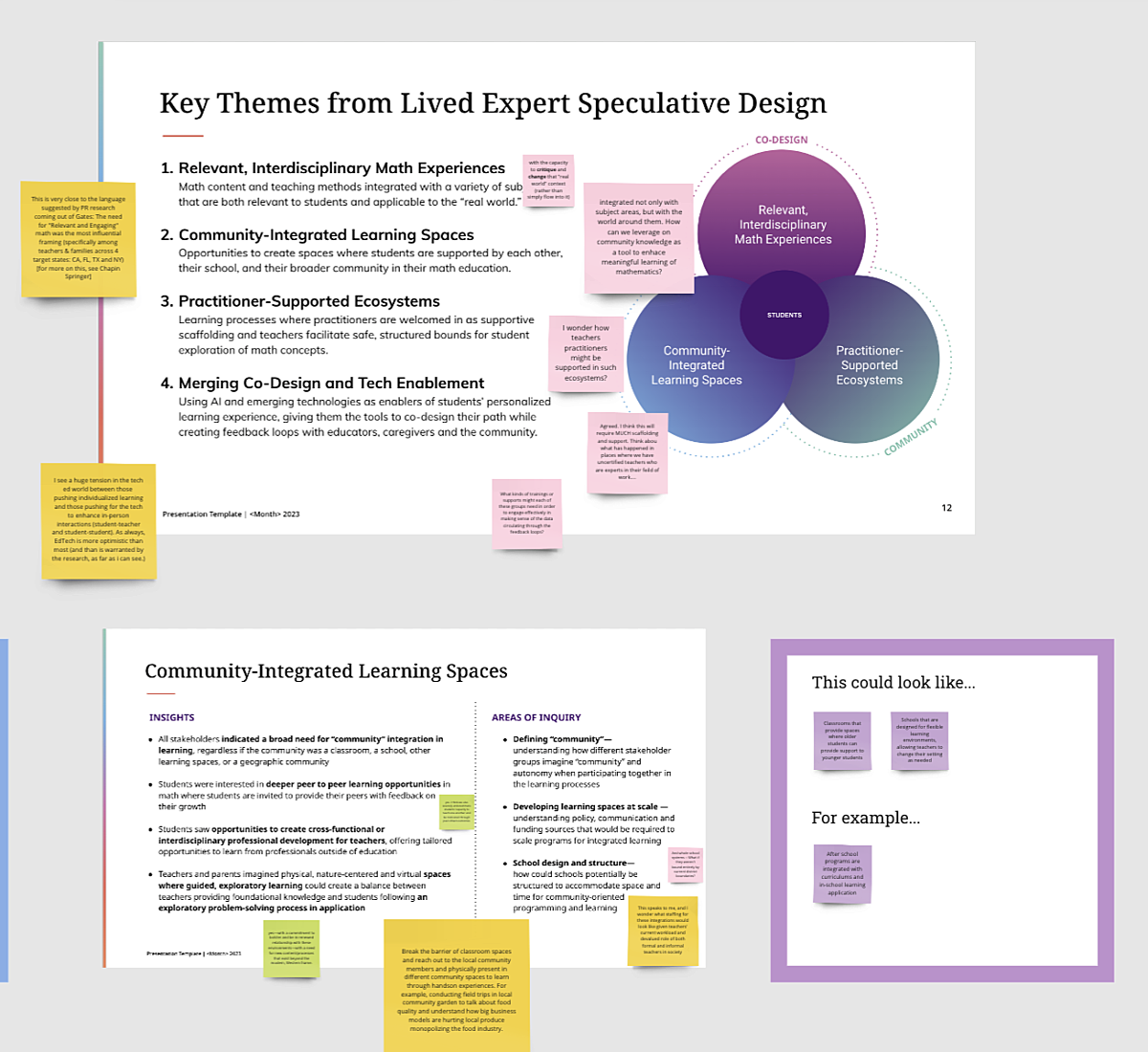
To build trust, foster inclusive innovation, and mitigate researcher bias, we engaged a cultural moderator with lived proximity to student experiences and professional expertise in learning design to support workshop facilitation and data synthesis.
Taking the ideas imagined by lived experts in the co-design workshops, we collaborated with subject matter experts (SMEs) with specific areas of expertise in policy and implementation to get their support in identifying pathways to making the lived experts’ vision a reality.
Our co-design approach resulted in the creation of visions for the future of math, with accompanying principles, resources, and tools to guide policymakers, education leaders, technologists, and other stakeholders not only adapt to change but collaboratively shape a resilient future.
Lived experts shared a vision of the future of math education that was joyful, collaborative, and engaging. They imagined a world where math felt relevant, providing students and teachers with new spaces to explore concepts together. In this world, caregivers and working practitioners in various career fields were also important stakeholders, taking part in math education by sharing their experience, expertise, and guidance as students navigated new problem spaces.
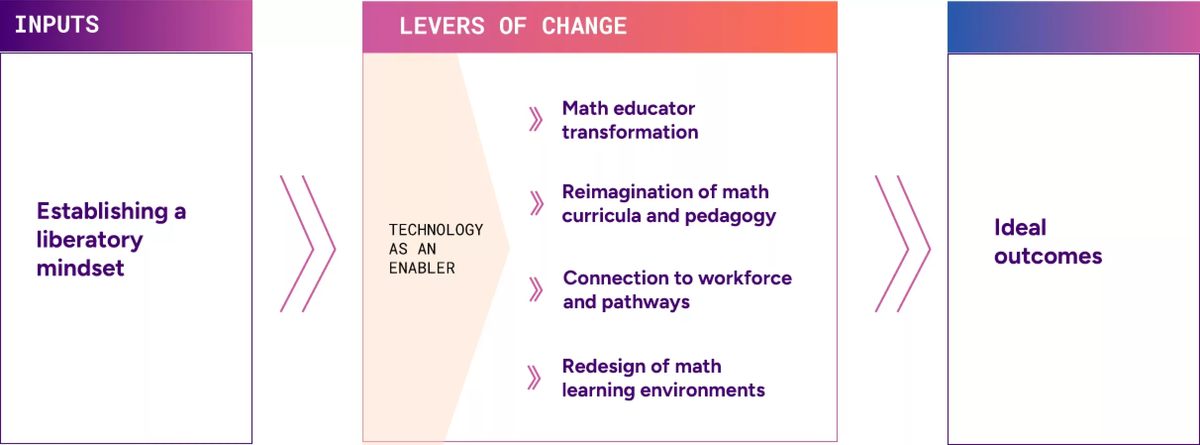
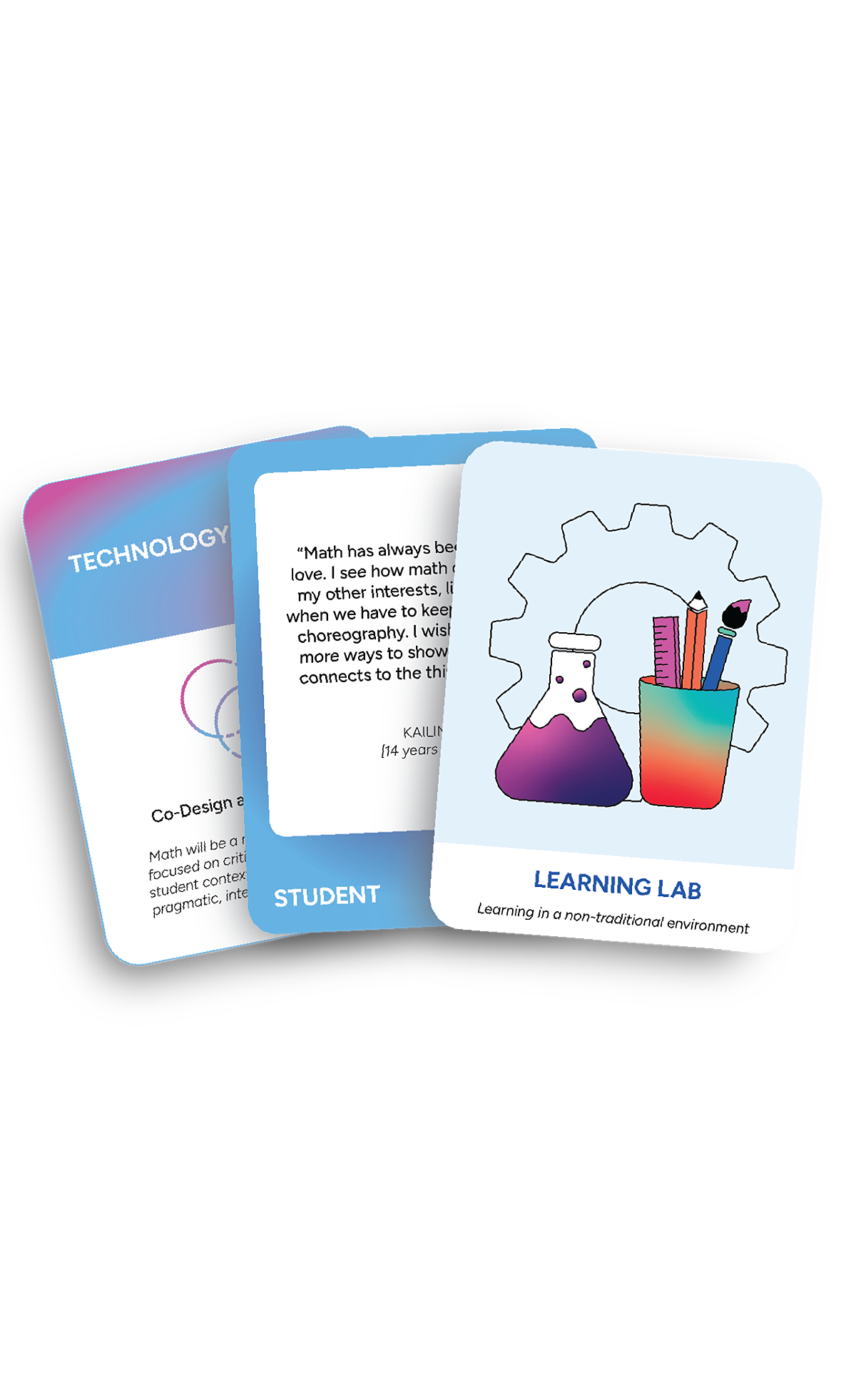
We created a Toolkit that helps envision equitable, and liberatory math education for the decades ahead. This toolkit is designed for a diverse range of users, including educators seeking to innovate in the classroom, students eager to reimagine their learning experiences, product teams developing educational tools, and investors looking to support future-focused education. It provides a flexible framework for all stakeholders to collaboratively design and envision the future of math education.
As we think about the broader impact of the fast-evolving future of the role of technology, we developed guiding principles to ensure the safety of products that go to market and help develop trust and a sense of agency with future students, teachers, and caregivers who will become co-designers.
Principles for Development
Co-Design and Transparency: Technology needs to be created and developed in a community with those most marginalized within the system.
Principles for Use
Creativity: Technology should diversify ideas and promote creative thinking.
Active Learning: Technology should prioritize inquiry-based learning and productive struggle.
Human Relationships: Technology should enhance and prioritize human relationships.
Data Autonomy: Data collection practices should prioritize the autonomy and consent of students.
Discover how the vision for the future of math can turn into reality by downloading our report, immerse yourself in the future of math by visiting our website, and find out how you can get hands-on with the toolkit.
→ Immerse in the future of math
54
Lived experts engaged
34
Subject matter advisors
15
States represented
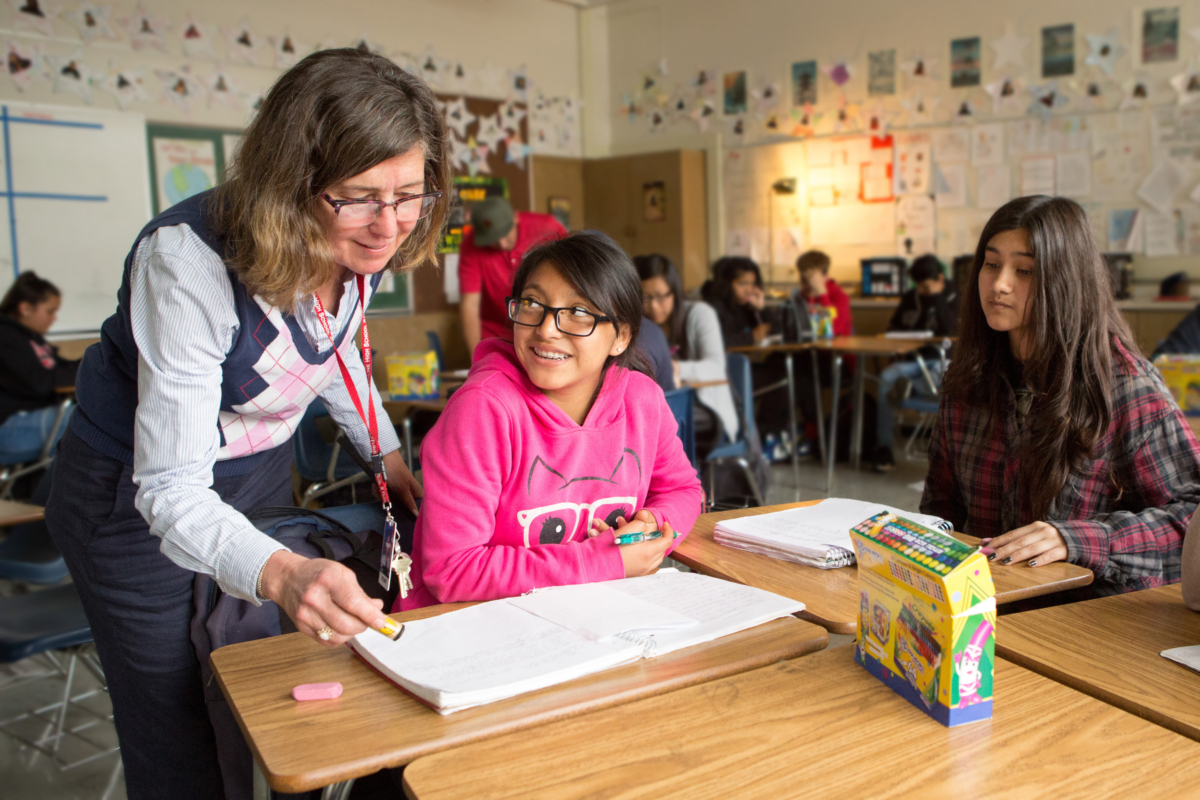
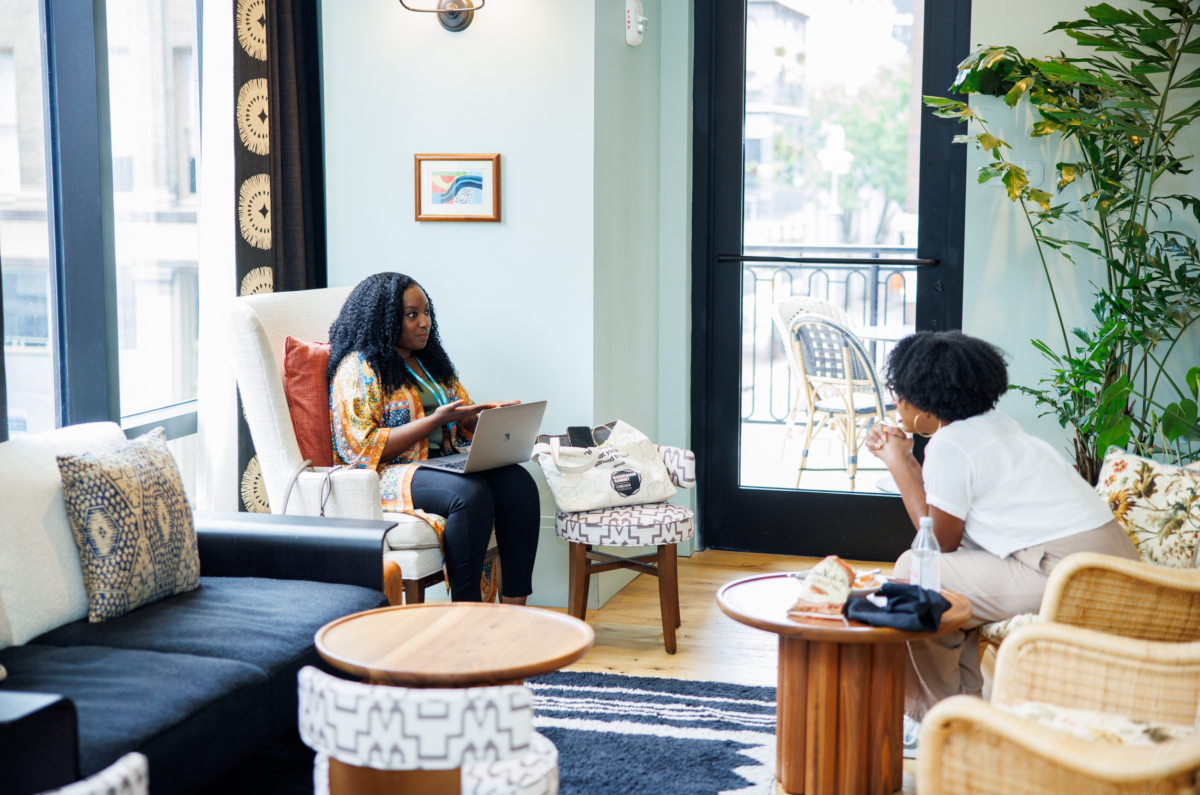
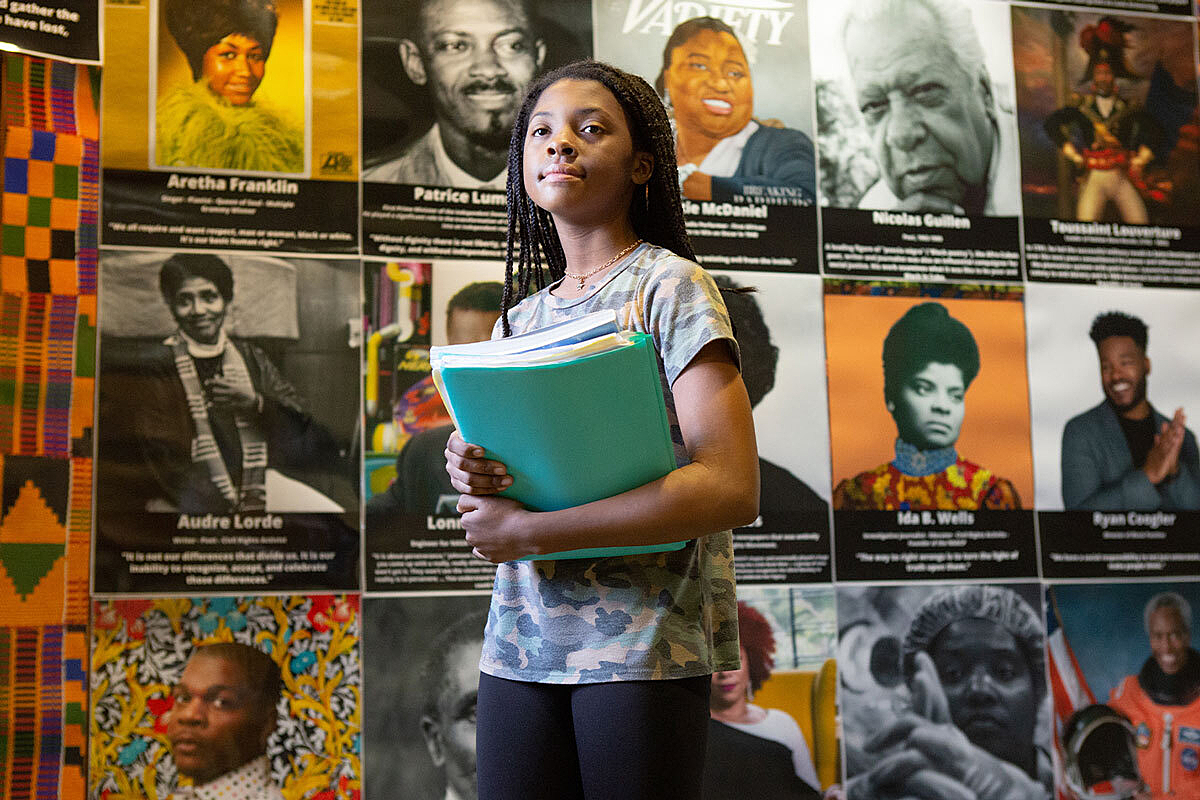
Let’s Design the Future of Learning, Together
We're using cookies to deliver you the best user experience. Learn More
It’s a form. You know what to do. But if not, send us an email at info@optimistic.design.